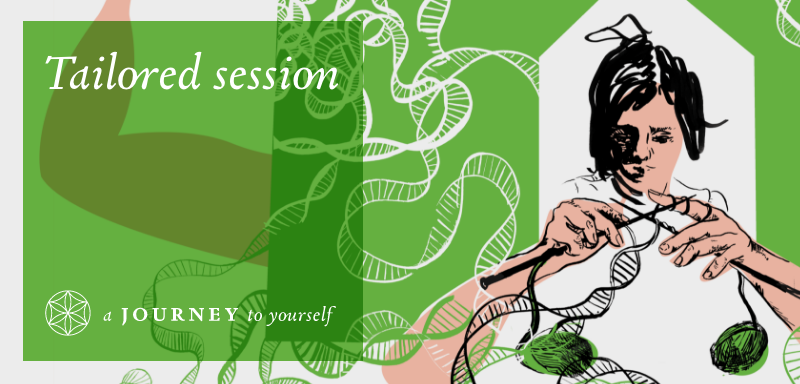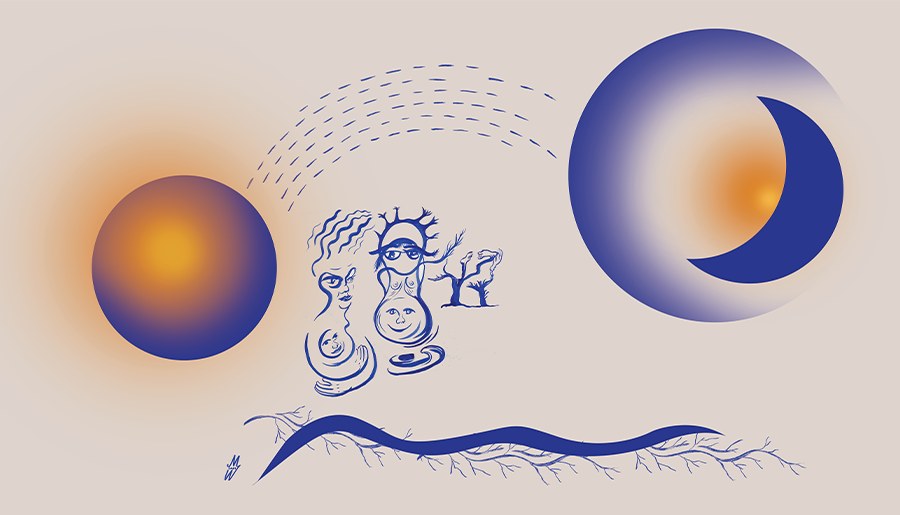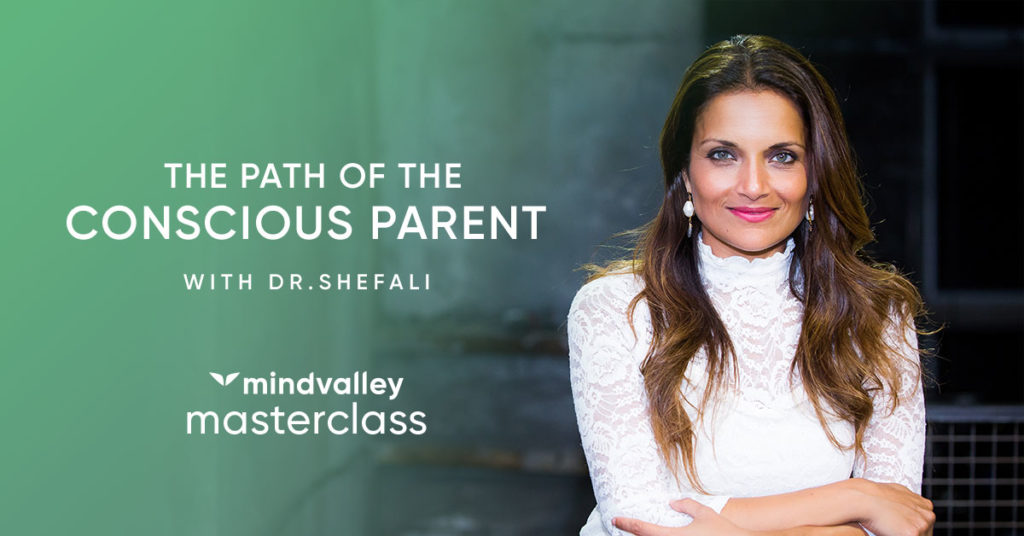What is the child-parent bond?
When a new soul comes into the physical world, the curtain of oblivion falls behind it, causing it to forget who it really is. The only goal for it then becomes the intention to live. With the first breath, therefore, it begins its struggle for survival.
Surviving means meeting its basic needs: food, thirst, sleep, as well as physical contact that provides it with a sense of security. However, it is incapable of securing them on its own. It does this by creating bonds with the caregivers around it, above all with its mother and father. In this way, it builds attachment and anchors itself to the physical plane of existence.
In this article you will find out:
- Why the child-parent bond is important?
- What could upset it.
- What the most common outcomes associated with a breach of this bond are.
The curtain of forgetfulness also makes the soul learn to know itself from the moment of its birth, continuing this process until the end of life. This is how the Universe experiences itself. By manifesting its divinity on the physical plane, its whole life tries to recognize itself, its own divine nature.
The earliest images of who you are and how your life will unfold are created in the womb, at the time when the soul enters the physical body and “loses its memory”.
This forgetfulness makes it treat the mother’s womb as an extension of itself and fully identify with it. And all the emotions and thoughts of the mother that penetrate her world during pregnancy, it treats as its own, which is why they affect who it will be. They determine whether they will be a rather calm person by nature or rather nervous. Open or timid, easily overcoming difficulties, or inflexible. This sense of the mother’s soul experience as a synonym for the whole world continues after birth. The mother’s touch, her gaze, and the smell are in contact with life as such. In the first period of life, the soul is convinced that it is permanently bound to its mother.
Thus, the life handed over to the child by its parents becomes the matrix according to which it gives meaning to its existence. This matrix is already formed in the mother’s womb – when it is its whole world. As long as you are too young to understand the world, your mother is your mirror. Therefore, when you grow up on many levels, what you think about your mother is what you think about life.
Mother = Life
A mother should care for comfort, and survive the child as long as it is too young to take care of it on its own. The child obviously signals its needs in the way it can and expects that these needs will be met immediately and fully. Experiencing such care, a child begins to believe that it is safe and that life always brings it exactly what it needs.
In early childhood, a child builds its first neural connections in its brain, and also acquires basic beliefs on which to base its entire future life.
It learns what behaviors bring it pleasure and what are unpleasant and therefore it should avoid them. In this way, experiences give rise to your basic life beliefs. When the relationship with the mother develops correctly, in adulthood, health, money, and success come to such a child, because it believes that the world is favorable to it and that all its needs are covered.
The problem arises when this early bond with the mother, as well as with the father or other caregivers, is disturbed, and also when this bond is completely broken (e.g. by adoption). The loss of parental attention causes the child to feel lost and life threatened. If this bond is broken, its natural state of mind will become fear, a sense of lack, and distrust. This will become the source of its life problems.
When the bond problem occurred at a very early stage in the formation of the bond, you may not have any memories of it, but information about it will be recorded in your body. This can manifest itself in feelings of fear, confusion, numbness, failure, separation, or even annihilation. As well as closeness and separation in relationships.
Since the brain in the prenatal and infancy period is not yet able to convert experiences into stories and write them down as memories, all longings are recorded in the subconscious as hunger and desires that you will try to satisfy in various ways in adulthood. For example, through uncontrolled shopping, a constant search for adventures, holidays, or new partners. Anxiety, phobia, panic attacks, obsessive, depressing thoughts, overwhelming emotions, and upsetting body reactions are symptoms that indicate a disturbance of this early bond.
The fear written in the subconscious will distort your perception of reality, making difficult and uncomfortable situations seem catastrophic and life-threatening because these are the synapses in your brain that were created in your childhood.
Most of the time, you only remember painful childhood memories, not positive ones, although you have both good and bad moments in your childhood. Memories of being hugged by your mother are dominated by memories of the pain. That you were devoid of love. This is because everything that was disturbing was perceived as an attack on your life – a danger, and therefore your body mobilized the protective system. These events triggered a release of cortisol in your brain, which led to the saving of these neural pathways. This is how we remember painful events more.
Disturbances in the relationship with a parent include rejection, abandonment, feelings of betrayal, humiliation, and injustice. As well as merging with the parent and their pain, breaking the bond or identifying with another family member. The experience of the breakdown of an early bond with a parent may cause identification with a member of the family system other than the parents.
A variety of factors can fail in trying to bond in the first years of life.
They can be caused, for example, by low parental involvement, whether due to stress, addictions, or personality crises. Sometimes it may be physical separation, e.g., adoption, complications in childbirth, hospitalization, work, or long trips. Sometimes emotional, when the mother is physically present but emotionally unstable, or when they rarely pay attention to the child and therefore do not feel safe and secure. Children need the emotional and energetic closeness of their mother as much as her physical presence. When a mother experiences trauma, she suddenly loses her health, pregnancy, child, parent, partner, and home – you lose her attention. Which is a traumatic experience for a child. It can also lead to problems later in adulthood, including disease.
Child-parent bond. Child-parent bond.

Child-parent bond. Child-parent bond.
Bond problems can occur even in the prenatal period.
High levels of tension, anxiety, depression, a stressful relationship with a partner, the death of a loved one, aversion to pregnancy, or the experience of a previous miscarriage can prevent the mother from properly synchronizing with the baby that develops inside her. The permanent and secure presence of the mother throughout the first few years of a child’s life is therefore crucial for the child’s emotional and psychological well-being.
Early separation causes you to feel empty and despair, as well as a deep belief that there is something wrong with you. Early separation from your mother or breach of that earliest bond with her makes it difficult to find a sense of peace, the feeling that you are standing firmly on the ground. And the first dropout is the pattern for many of the successive rejections and dropouts that you will encounter later in life. Therefore, you must end this cycle of suffering.
Early separation from your mother can make it difficult for you to be stable in your love relationship.
You may be subconsciously afraid of closeness. That it will suddenly be taken from you, and it will end. Out of fear, you will stick to your partner too much, just like your mother once did. Or you will push him away with your beliefs that your intimacy may end. If you experience a disturbance in establishing the first contact with the mother, it may result in rejection of her. This behavior can cause anxiety when trying to enter a relationship with a partner in adulthood. It will be manifested by difficulties in maintaining a relationship, an unwillingness to establish relationships, or a decision not to have a descendant.
When a person falls in love, they unconsciously travel in time to those earliest experiences with their mother. This triggers very intense emotions towards your life partner. Very similar to the ones you have for your mother. Because you meet someone special and you hope that you have finally found someone who will take care of you, who will understand you, satisfy your every desire and need, and give you everything you need. Subconsciously, you expect that person to give you everything you didn’t get from your parents.
Often, even though you have experienced an early severance from your relationship with your mother, you do not feel bitterness.
You love her and you trust her. However, you can close yourself off from taking her care and assume the role of caretaker for her. As a result of a parent’s emotional, health, or mental problems, you can also merge with the parent. It will be manifested in suffering seeing the parent’s pain, a desire to help them, trying to help them, fear of showing emotions to one of them and taking over their parents’ suffering. Mating with a parent does not allow you to fully develop your own identity and individuality. Then you don’t know who you are and what you feel.
Failed relationships often stem from painful experiences in family history as well.
They often repeat in successive generations. Until someone in the family system decides to break free and open their heart to look at their parents and family members with compassion. Not all the feelings you experience are related to your personal experiences. They may also belong to your ancestors. Disruptions in the mother-child relationship that have occurred in previous generations can affect your relationship with your mother. Perhaps you feel like one of your ancestors? Do you feel that you are repenting for a member of your family? Do you act in a way that is difficult to relate to your own life experience? Perhaps someone in your family has been rejected.
Sometimes families who have experienced tragedy and suffering do not want to go back to the painful past. Parents do not want to expose their children to unnecessary pain. They prefer to ignore the truth or remain silent about it, protecting their children. Unfortunately, silence does not protect the next generations at all.
Each of us is responsible for our own fate and must bear all the consequences associated with it. Attempts to dismiss or rediscover one’s destiny may result in another member of the family system paying with his life for this price.
In the first year of life, the child begins to realize that it is a separate being, and although it is very closely related to its mother, it moves away from her but is confident that it can return to her at any moment.
During this stage, it also begins to explore the surrounding environment by taking everything in its mouth. Freud called this phase, which lasted until the child’s second year, the oral phase. In its opinion, the mouth is not only used to ingest food but also satisfies the need to possess something and incorporate it. They are also related to the desire for care and the desire for emotional nourishment. This is how the mouth takes root in the psyche as a relationship regulator. If this phase is not carried out correctly, it may result in anorexia nervosa (anorexia) or mental bulimia nervosa (bulimia nervosa). And lead to the attitude of seemingly agreeing to ignore one’s own needs.
If you want to open to life. If you want deep and fulfilling relationships, joy, and health, you must first mend your relationship with your parents. It has been proven that good relationships with parents improve the feeling of comfort and security, and also have a positive increase in human health.
Sometimes you judge a parent for your harm, you deny them respect, and you distance yourself from them.
You blame your inability to meet your needs. But when you reject your parent, you don’t see how similar you are to them. You displace certain behaviors and project them onto other people around you. At the level of the body, it manifests itself as pain, tension, or numbness. Cutting off gives you a feeling of freedom at first but limits your ability to experience life in the long run. Emotions, traits, and behaviors that you reject from your parents are likely to revive in you. It’s your subconscious way of loving them. Taking the side of one of the parents is also not a good solution. It causes you to turn against the source of your own life. When a parent is rejected or disrespected, one of the children in the family can become the representative by adopting the behavior that caused the rejection.
Child-parent bond.
Child-parent bond.
You must remember that when your parents were giving you pain, they had no intention of doing so.
They did everything they could from their point of view and in the way they could at the moment. You may feel that you did not get certain things from them, or you feel sorry for what you inherited from them. Coming to terms with them is accepting what you didn’t get and what you got. When you reconcile with your parents, you will regain inner peace. And you will also restore harmony for future generations. The image of your parents that you carry within you affects the quality of your life.
Take a look at your deepest worries, struggles, or regrets. Consider the language you use to describe your parents. You can significantly break your relationship with your mother by intense longing, fear, and frustration in your words. Try to see in what language you describe your greatest fear. Look at the images, expectations, and opinions about your family. Try to look at your beliefs “I had a difficult childhood”, “My mother was cold,” My father was not interested in me”.
When you reject, accuse, or distance yourself from one of your parents, you will pay the price for it.
Rejecting a parent is rejecting a part of yourself. This rejection can manifest itself physically through illness. If you reject your parent, traits you dislike about them may show up in you. For example, when you think your parents are cold and too critical, you can become that yourself. Therefore, it is very important to invite your parents back into your heart and to become aware of the qualities that you have rejected in them and in yourself.
When you contact the painful parts of yourself, you have a chance to change something about them. Calming down your relationship with your parents gives you a sense of inner peace. Getting in touch with at least one warm, inner image of your bond with your parents can be the beginning of a change in your relationship with them. When you get angry with your parents, you get angry with yourself. Even if your relationship with your parents is distant or non-existent, your internal relationship with them is constantly evolving.
Fortunately, mending a bond doesn’t end with childhood. Healing her can happen at any stage of your life. You can also do this when they are not physically present and even when they are dead. It is important that this relationship is corrected. Otherwise, you will repeat patterns of dissatisfaction, distrust, anger, withdrawal, disconnection, abandonment, abandonment, or being abandoned. You will blame your partner and the world for your misfortune. It is difficult to find relief when the source of longing is the lack of maternal care. For those cut off from their motherly love, life becomes a constant search for consolation.
Source:
Mark Wolynn „Nie zaczęło się od ciebie”, Czarna Owca, 2020, Warszawa.
Thanks to our partnership with Mindvalley, you can now learn conscious parenting from the best experts in the world.
Discover a new model of parenting Oprah called “Revolutionary” and “Life-changing” so you can create the ideal environment for your children to thrive and blossom into their most authentic self with conscious parenting expert, Dr. Shefali Tsabary.
Child-parent bond. Child-parent bond.



